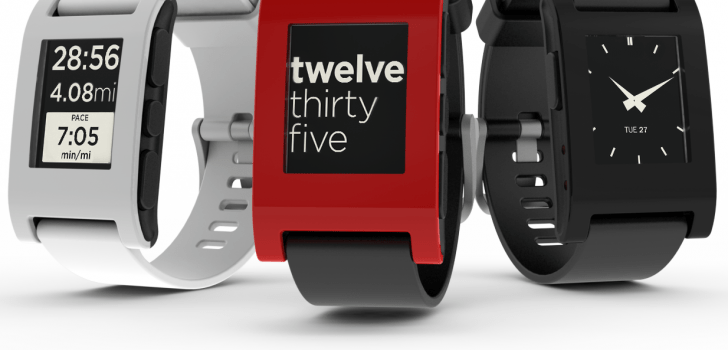Corporate behemoths are resorting to stealing ideas from Kickstarter successes as they try to find the next big thing. The popular crowdfunding website allows small-time innovators to bring their creations into the world and potentially challenge large corporations in the marketplace.
However, large corporations aren’t sitting still and are instead taking advantage of this by creating their own products that are strikingly similar to successful products on the crowdfunding website.
A good example of this phenomenon can be found in the Pebble Time Smartwatch. It became the most heavily funded Kickstarter campaign in history when it raised $20.3 million. An earlier version also raised $10.3 million in 2012. The Pebble was an incredibly innovative product. It features a long battery life, music controls, and functionality with both Android and iOS.
After its release, big technology companies such as Samsung and Apple quickly got into the game by releasing their own wearable devices.
While the underdogs from Kickstarter have a slight edge by getting into the market first, analysts remain skeptical that these small crowdfunded companies and their innovative ideas can defeat industry giants.
Chief analyst at Jackdaw Research Jan Dawson says, “It’s extremely tough for a product that starts on Kickstarter to compete in a meaningful way with the big established tech companies in categories they are interested in once they start to really invest. Apple spent $20 million in research and development per day last quarter, so even the biggest Kickstarter projects are tiny in comparison and should be seen in that context.”
While these small businesses are not dominating the market, they are paving the way for larger companies to release similar products. The small businesses do not steal market share, but rather they establish new markets. This can be seen in the sales figures. It took Pebble 18 months to sell 1 million watches; Apple did this in less than one day.
It can be surprising that large technology corporations fail to move into new innovations quicker. According to Stanford University business professor Charles O’Reilly, big companies are often unwilling to risk revenues in order to establish unproven ventures. O’Reilly says, “Leaders are focused on the short term and, even as they pay lip service to the long term, they are unwilling or unable to be ambidextrous. This gives startups a window to scale up, and this often means that by the time the mature organization responds, it may be too late.”
Scale of production is another factor contributing to this phenomenon. Kickstarter campaigns don’t need to worry about selling millions of units. Since Kickstarter users able to accurately estimate the demand of their products based on the success of their campaign, they can have production runs that are sized accordingly. Meanwhile, a big company such as Apple or Google is forced to produce millions of units and hope that they all sell. Thus, there is more risk for a larger company to be “innovative”. Instead, they are letting smaller companies take the initial risk, and once they realize that a product is a hit, they simply create their own version.
Lead for technology and design projects at Kickstarter John Dimatos says, “This approach really cuts down on the risk involved in trying something new. Ideas come to life that wouldn’t have a chance inside of a big corporation, and sometimes those ideas catch on with a much wider audience.”
Regardless of whether or not small Kickstarter companies have the ability to steal market share, these indie innovators are increasing the scope of what can be achieved with a little innovation. However, it might end up being the larger companies that ultimately profit due to their financial power and widespread name recognition.
Stay Connected